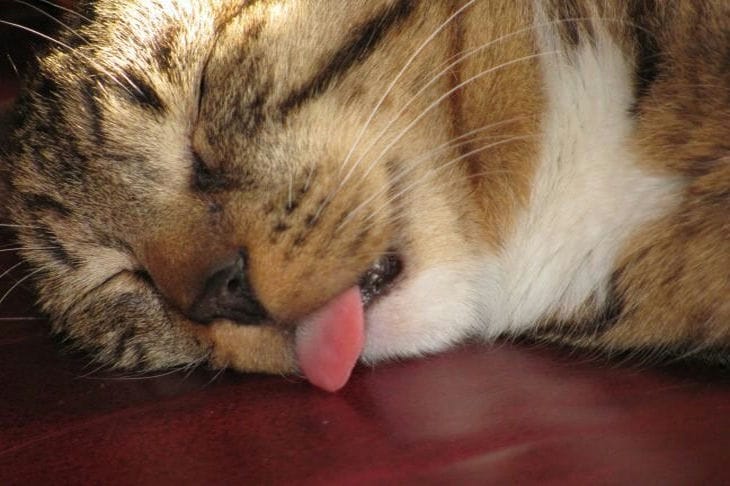Although cats seem calm and unperturbed to most of us, these animals are also capable of experiencing stress, and it is very easy to upset the pet’s mental balance.
Why shouldn't you ignore this condition of your pet?
The answer is simple: against the background of prolonged stress, a cat can develop various kinds of diseases, so the first thing a responsible owner should do is to become familiar with the signs of stress in a cat.
Why is a cat stressed?
Any factor that disrupts the pet's measured life can lead to stress in a cat.
Most often, an animal falls into a stressful state in the event of moving, renovation, the appearance of another pet in the house, a visit to a veterinary clinic, changes in the usual daily routine, etc.

In addition, stress can be caused by health problems, periods of pregnancy and breastfeeding, parasites, etc.
Symptoms of stress in a cat
Stress can occur in acute and chronic forms.
You will understand that the cat is scared of something and is ready to defend itself by the pet’s arched back, raised fur, wide pupils and pressed ears.
During periods of acute stress, cats typically experience intermittent breathing, increased heart rate and salivation, increased blood pressure, tremors, and spontaneous bowel and bladder emptying.
It is important for the owner to eliminate the stress factor in time and provide the pet with a sense of security for a quick recovery.
If the stress factor affects the animal for a long time, we are talking about chronic stress.
The following symptoms will help to recognize it: the cat pays increased attention to licking its fur or does not care about hygiene at all, the pet has problems with digestion and its eating behavior has changed (the last point, by the way, is often accompanied by weight loss or sudden weight gain), the cat has an unkempt appearance, hair is falling out, it is lethargic and does not want to play.
If the animal ignores the litter box, always wants to hide in a secluded place, or shows an overly acute reaction to loud sounds, sudden movements, or changes in lighting, it also needs to be shown to a doctor as soon as possible.








